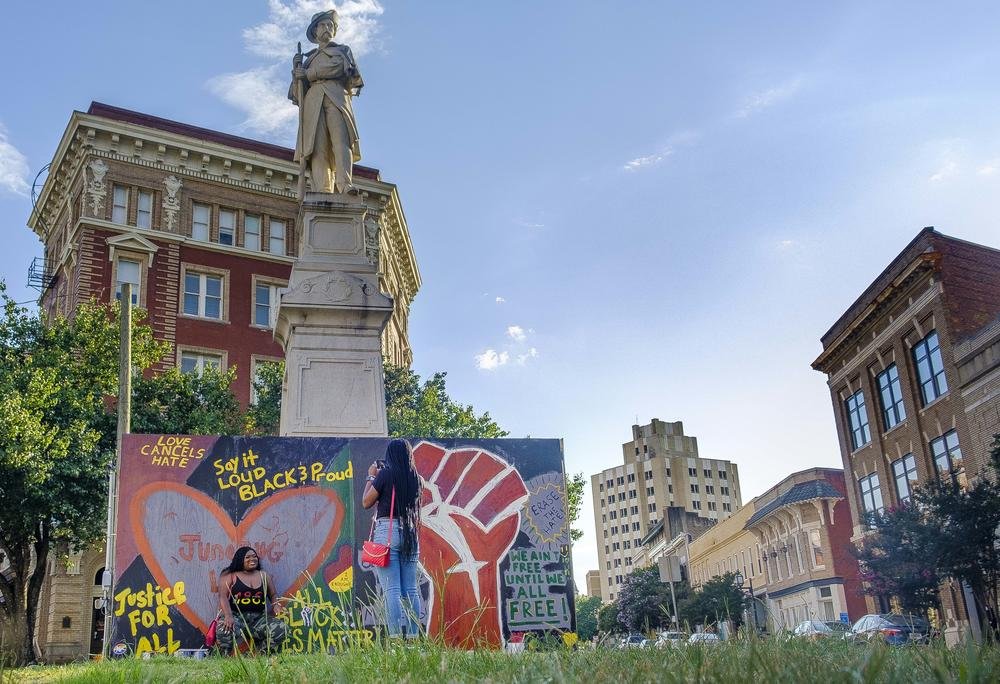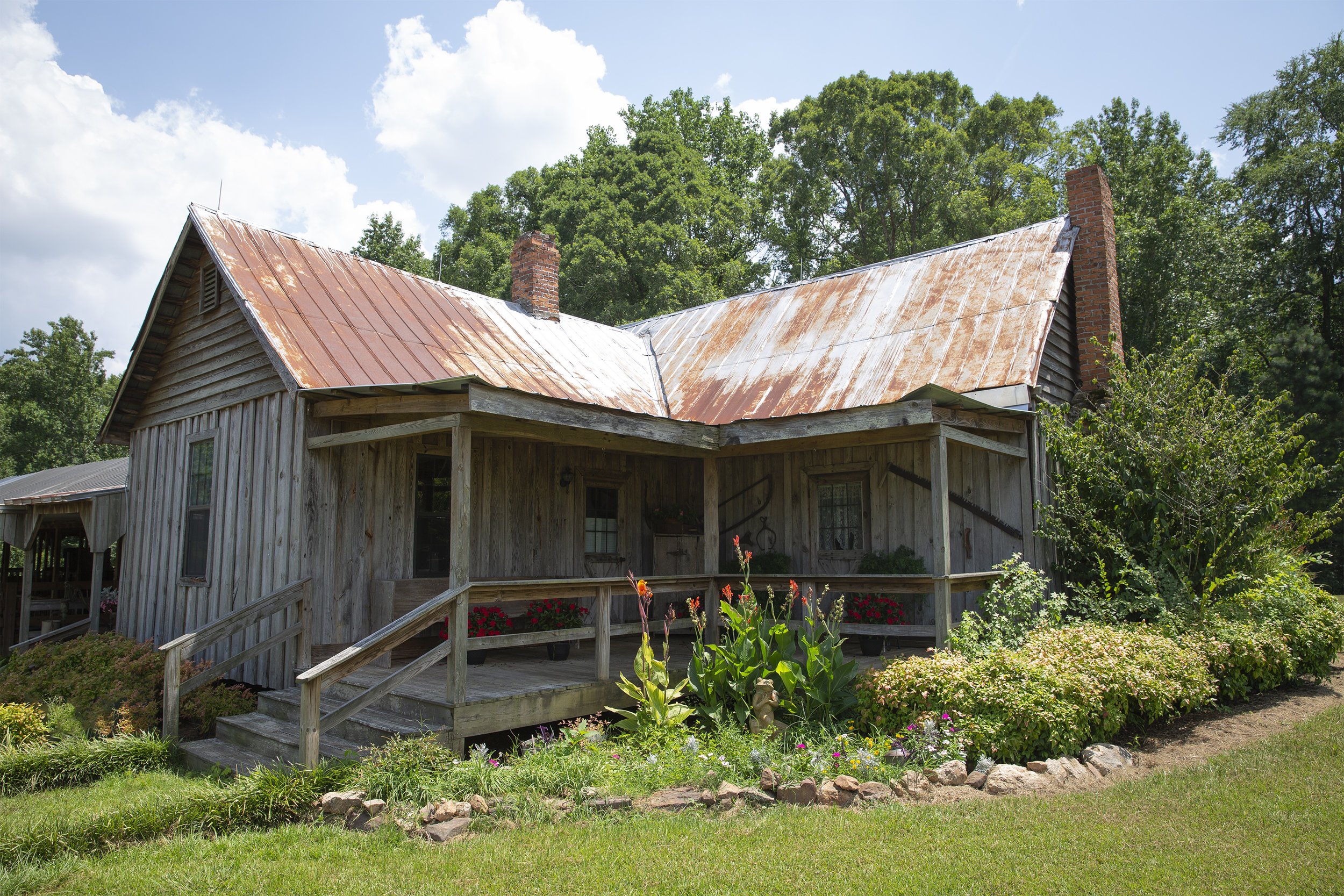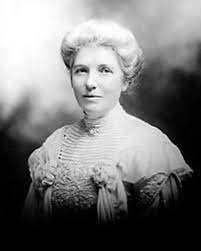Erasing History
It is often said that history is written by the victors.
As a transplanted southerner, my daily drive past Confederate monuments indicates that this is not always the case.
The southern narrative that the Civil War was about states’ rights continues to have its claws in households throughout the country. That those “rights” being fought for were to exploit human beings for the sake of economy is conveniently omitted from the story arch. Over a hundred and fifty years have passed since the defeat of the Confederacy and still the losing side owns the hearts and minds of many. By the way in which the Confederacy has shaped Southern identity, one would think the rebel nation reigned for decades. In reality, the movement never gained legitimacy and lasted under five years. Desperate Housewives was on the air for more years than that.
No, history is not written by the victors. History is written by the powerful.
The South did not win the war, but the rebels have displayed their power in town squares across the nation for decades. That the racist participation trophies were recently removed from Macon’s downtown is not erasing history, it is aligning communities with the historic truth: the Confederacy lost the war and should have lost any power a long time ago.
Why History Matters
Understanding the history of our nation is not a plot to incite guilt but rather a tool to inspire intentional change. Engaging with an issue in a silo, instead of in context, prevents meaningful strides. We see this at every level, even in our one on one relationships. If your employee is late to work one morning, little (if anything) may be done to address it. If your employee is late to work daily for several months, action must be taken to problem solve.
When we confront an issue, being equipped with historical understanding is paramount. This is why we see articles and efforts to propagate awareness around gun violence, hate crimes, pregnancy and abortion misinformation, critical race theory and more. A better knowledge of how policies and practices have actually impacted people in the past equips us to change course towards a better future for all.
Intentional Omission
Whether it be politicians, school boards, or parents, efforts to omit information that disrupts a convenient narrative, like book banning, continue to threaten a comprehensive historical understanding. In my public education, the brutal realities of slavery were glossed over, the historical oppression of women barely acknowledged, the injustices of our government against indiginous people were overlooked.
Intentional omission is a tactic used to control outcomes; if people are unaware of key factors, they can be easily swayed. There is a reason the powerful fight to omit histories from the narrative. Knowledge empowers.
Places Preserved
I may not have learned about our local indigenous tribes in school, but I can go to the Ocmulgee National Park and physically see the beautifully preserved earth lodge. Places serve as the physical evidence of a past. They invite us to engage with them and learn from them. They can be the lessons hidden from us as children, revealed.
I see the Ocmulgee National Park but no one from a native tribe living here today; this is my invitation to find the history omitted.
I can visit the homes of neighboring, southern authors Alice Walker and Flannery O’Conner and see the disparity in both their origins and their homes’ present-day preservation; this is my invitation to find the history omitted.
I can visit Little Richard’s childhood home and learn that it was moved to build an interstate through his neighborhood; this is my invitation to find the history omitted.
Places of historical significance cannot be replaced. When the Tremont Temple was destroyed to build a Dunkin’ Donuts, it was a statement that modern conveniences mattered more than preserving an important piece of local, civil rights history. That building is gone forever. But our chance to do better next time remains.
The childhood home of Alice Walker in Eatonton, Georgia
Macon, Georgia is disproportionately blessed with places of historical significance. There are high profile sites that people travel here to visit as well as hidden gems around every corner. From the invention of Crisco to the origins of southern rock, the impact of things begun in this unassuming southern town resound through our lives today.
One such history is that the first woman to ever earn a bachelor’s degree from a chartered college is from Macon.
On July 16, 1840, Catherine Elizabeth Brewer Benson became the first woman to receive her degree from the first college in the world chartered to grant degrees to women, Wesleyan College. This woman and this college paved the way for every woman who holds a degree in higher education today.
This is huge.
Sadly, her family home, though listed as suitable for family occupation as recently as 2015, is currently slated for demolition. This house at 2353 Vineville Ave is widely known as one that has been severely neglected. It is also widely believed that the current owner and neighbor, The Big House Museum, wants to tear it down to build an amphitheater. What is NOT widely known is the connection of this home to Catherine Brewer Benson.
When Histories Collide
The Big House Museum is the once home of the Allman Brothers and currently serves as an homage to their musical legacy. It has been an important part of our local economy and culture and important to southern rockers everywhere. Their expansion is an exciting sign that their influence and support continue to grow, something Macon will certainly benefit from.
That the Big House Museum may want to build an amphitheater is no concern of mine, I leave that battle to the residents who surround it. That they wish to demolish the Catherine Brewer Benson house to do it, is.
To tear down the home of the first woman in the world who was allowed access to formal higher education is an insult to her memory and to women as a whole. It would be a statement that southern rock matters more than preserving an internationally significant place in women’s history. In this moment nationally, women are feeling silenced. This action would not be without context.
The Allman Brothers’ contributions to music are important.
Catherine Brewer Benson’s contributions to women’s rights are also important.
One important history does not negate the importance of another.
The Big House Museum has a responsibility to protect the integrity of the house on 2353 Vineville Ave. We have a responsibility to hold them accountable to that.
Ignorance as a Shield
In every document, meeting, or statement about this house’s proposed demolition, its connection with Catherine Brewer Benson is not acknowledged. Historical significance is denied completely by those involved.
Would be stakeholders have been shielded by the community’s general ignorance; a shield I hope to remove with this article. Wesleyan College, media outlets, community leaders, women’s rights activists, preservation organizations, and neighbors all must be made aware of this house and its vulnerable situation.
History is written by the powerful and there is power in knowledge. There is power in places.
2353 Vineville Avenue in Macon, Georgia is not valued as historically significant; this is my invitation to find the history omitted.
Post Script
A meeting of the Macon-Bibb County Design Review Board will be held in the MBPZ Conference Room in 200 Cherry Street, Suite 301 beginning at 4:00 p.m. on Monday, July 18 to discuss the demolition of this house. Additionally, Planning & Zoning will meet on Monday, July 25 has this house on their agenda. Now is the time to raise awareness. Now is the time for action.
Here is a petition to oppose the house’s demolition.
This report by local historian Elliot James Fernandez details the significance of 2353 Vineville Ave in relation to Catherine Brewer Benson. Read it, share it far and wide. Let us remove the shield of ignorance from the table.



